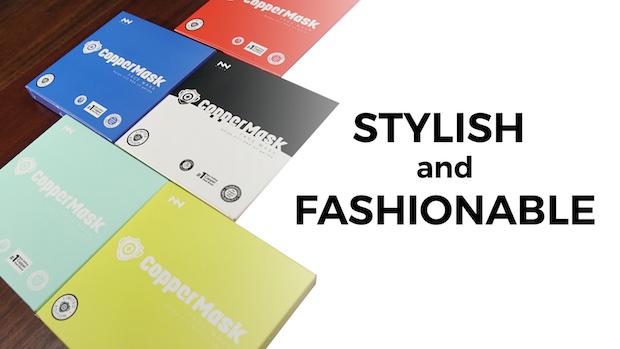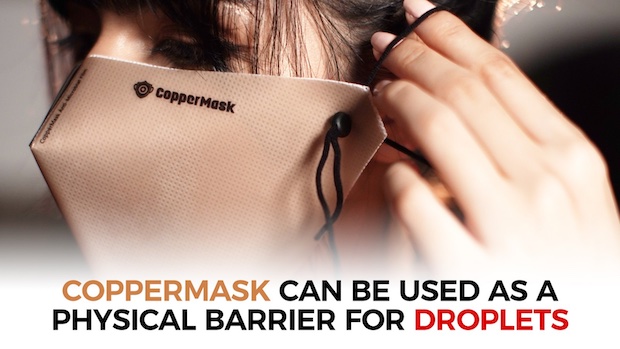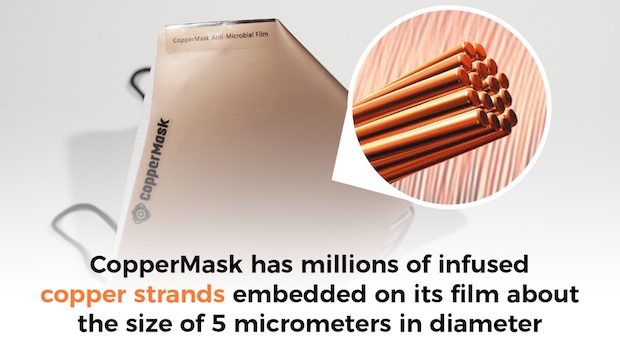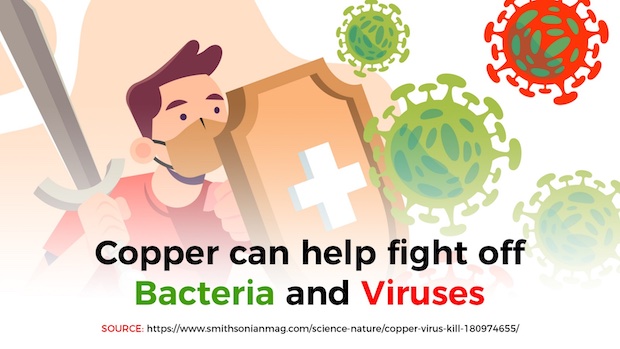CopperMask helps block coronavirus in airborne droplets in style
Face masks have become an essential part of the fight against the spread of SAR-CoV-2, the virus that causes Covid-19.
Masks have become part of the average person’s daily routine, along with frequent washing and sanitizing of hands, practicing safe social distancing, and staying at home when it’s not important to go outdoors.
So how does COVID-19 spread between people?
According to a report published by the World Health Organization, the coronavirus spreads mainly through close contact with an infected person.
“The virus can spread from an infected person’s mouth or nose in small liquid particles when they cough, sneeze, speak, sing or breathe heavily. These liquid particles are different sizes, ranging from larger ‘respiratory droplets’ to smaller ‘aerosols’,” the report says.

Fight against the spread virus by frequently washing and sanitizing your hands, maintain social distancing, and stay at home when you don’t have anything important to do outside.
Infection is more likely to happen when people are in direct or close contact — that is, less than a meter apart — with an infected person.
So wearing a face mask prevents infection, especially in cases when people could not avoid getting up close with each other.
CopperMask, aside from its unique design that blends safety and fashion, also boasts of its capability of blocking droplets that contain the coronavirus.
The main material used in this face mask was inspired by decades of scientific research on copper.
One such research — done at the University of Southampton in the United Kingdom — noted the natural ability of copper to fight off bacteria and viruses more effectively than other materials.
Researchers also noticed how long the coronavirus can survive on different surfaces.

CopperMask is known for its unique design that makes it stylish and fashionable.
Here are some of the findings, according to a report published on healthline.com that was reviewed by Dr. Meredith Goodwin, MD, FAAFP, a family medicine physician, practicing in Sacramento, California:
- plastic and stainless steel — 3 to 7 days
- glass and paper — up to 4 days
- wood — up to 2 days
- cardboard — 24 hours
It’s only on copper surfaces where the coronavirus remains active the shortest — up to 4 hours.
A newly-published paper in mBio, a journal of the American Society for Microbiology, also had the following findings:
On copper and a range of copper alloys — collectively termed “antimicrobial copper” — the coronavirus was rapidly inactivated — within a few minutes, for simulated fingertip contamination.
Exposure to copper destroyed the virus completely and irreversibly, leading the researchers to conclude that antimicrobial copper surfaces could be employed in communal areas and at any mass gatherings to help reduce the spread of respiratory viruses and protect public health.
Such findings led to the various applications of copper for medical, industrial and recreational purposes — essentially by providing extra layers of protection against bacteria and viruses.
CopperMask has a special film made of millions of tiny “infused copper strands” about 5 micrometers thick. This film catches droplets in the air and eventually help deactivate harmful pathogens.


